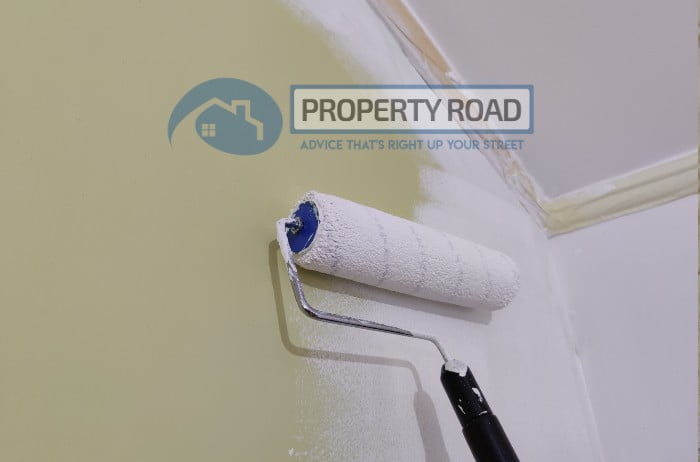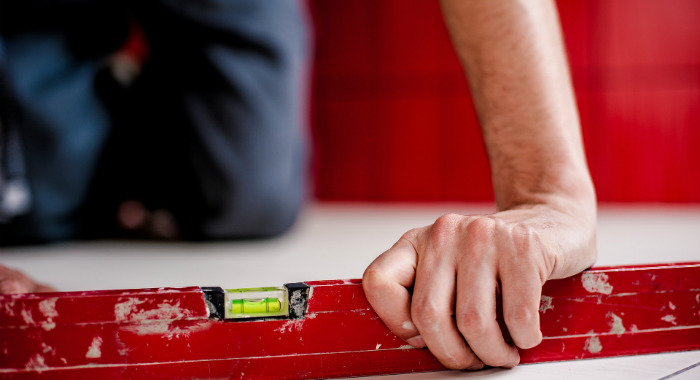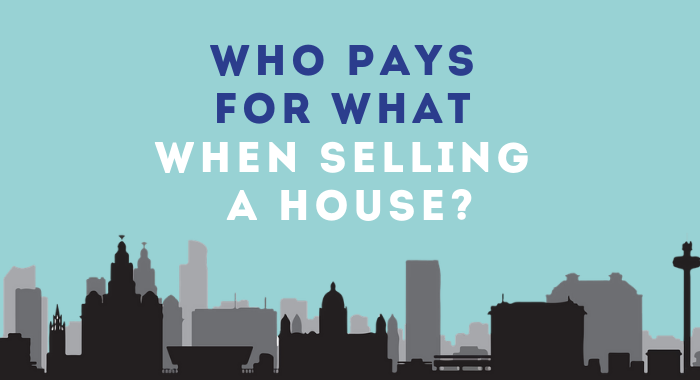If you’re looking at selling a house, then you’ll realise it’s a daunting prospect with various pitfalls, and you may be wanting to know who pays for what in the selling process.
This is our step-by-step guide to give you this information and will highlight whether the buyer or seller is responsible for picking up the bill for various issues.
There’s no doubt that selling a property can be a stressful and complicated process and along with the obvious fees, there are hidden charges that can quickly add up.
Indeed, one survey has highlighted that more than 25% of those who sold a home found the process was more costly than they had budgeted for.
Using the experience we have gained over the years buying and selling several homes, we’ll tell you who pays for what when selling a house.
At a glance: Who pays for what when selling a house?
| Service To Be Paid | Paid By Seller | Paid By Buyer | Comments |
|---|---|---|---|
| Repairs/Decoration Costs |  |  | If the seller decides to carry out repairs or redecorate before selling, the seller is responsible for the costs. |
| Mortgage Exit Fees |  |  | Any fees associated with the seller's mortgage are paid by the seller. |
| Estate Agent Fees |  |  | As the seller hires the estate agent, it's the seller who pays for their fees. |
| EPC |  |  | The EPC is paid by the seller. However, it is worth checking if there is still a valid EPC in place as they last for 10 years. |
| Solicitor Fees (selling) |  |  | The seller's solicitor's fees are paid for by the seller. However, the buyer will have to pay for their own solicitor. |
| Searches |  |  | Searchers are paid by the buyer, they are normally included in the buyer's solicitor's fee. |
| Property Surveys |  |  | Surveys are paid by the buyer. However, a seller can also get a survey done on their property if they want to know what issues might come up or have a list of repairs to do. |
| Removal Costs |  |  | The removal costs are paid by the seller. However, buyers will also have their own removal costs to pay for. |
| Remaining Mortgage Balance |  |  | The seller must pay off the remaining mortgage costs before the completion of the sale. |
| Stamp Duty |  |  | Currently, stamp duty is paid by the buyer, however, in future this might change. |
| Capital Gains Tax |  |  | If applicable, this tax is paid by the seller. |
| Utility Bills |  |  | The utility bills for the property up to the moving day are paid by the seller. |
The ‘selling a house’ process

The easiest way to find out who pays for what when selling a house is to look at the process first, so you know what it entails.
- Prepare your home for sale
- Sort your finances – if you have a mortgage
- Get your property valued and hire an estate agent to sell it for you
- Conduct Viewings – this can be done by the agent or by yourself
- Engage a conveyancer or solicitor
- Accept an offer
- Conveyancing process
- Surveys carried out at your property
- Hire a removal company
- Completion day – moving day
We will look at each step to see what costs are involved and who will pay for them.
1. Prepare your home for sale

It might sound weird, but before you do anything else you should prepare you home for sale. Doing this will give you a better chance to sell quickly and at a higher price. We have done this several times and always found that it helped us sell our home.
Repair anything that needs repairing, such as leaking gutters, creaking doors, cracked paths, dripping taps, etc. You want your home in tip-top condition.
Redecorate to refresh the rooms and make them look clean and bright. Keep to neutral colours, so that potential buyers can see themselves living there.
Of course this will involve some costs, and they are paid by the seller. The more there is to do, the more it will cost.
Declutter your house. We amass so many things over the year, and we don’t even notice how they make our rooms look smaller. Remove ornaments, unnecessary furniture and little trinkets. You can donate them to a charity shop or put them in storage if you want to keep them.
Depersonalise your home. Like most of us, we love decorating our house with photos of precious memories. After all, that’s what makes a house a home. But they make it your home and what you want is a house that looks like it’s waiting for its next owner.
You want to create a space that potential buyers can imagine living in rather than feeling like they are just visiting. Now you are ready for the next step.
2. Prepare your finances
If you are lucky to own you home outright, there isn’t anything for you to do in this step.
For sellers who still have a mortgage, the next step when selling a house is to tell their mortgage lender that they are planning to do so.
Find out how much is outstanding on your mortgage and whether the lender has any early redemption penalties. This penalty will be paid by the house seller.
Once you have sorted your finances, you can move to the next step of our guide about who pays what when selling a house.
3. Valuation and hiring an estate agent

The next step is to find a traditional or online estate agent who will have either fixed fees or a package for selling your home. The house seller will be responsible for these fees.
Finding the right estate agent is vital, because it could be the difference between selling your property fast or slow and at a high or low price.
Our article with the 15 best questions to ask an estate agent when selling a property will help you find the right estate agent for you.
Before you can put your house on the market, you need a valid Energy Efficiency Certificate (EPC). This is a legal requirement, so you can’t get around it. And the seller is responsible for paying for one to be carried out.
They will cost between £60 and £120 and will offer a certificate of how energy-efficient the property is.
4. Conduct viewings
Showing prospective buyers your house is a vital part of the house selling process. You can conduct your own viewings, or you can leave this to the estate agent.
As you are responsible to pay for the estate agent fees, you might want to consider conducting your own viewings to reduce the price. Online and hybrid estate agents will be cheaper if you do your own viewings.
Ever since we sold our first house, we decided to do the viewings ourselves. Not so much because it reduces the costs, but because we firmly believe that the homeowner can sell their house better than any estate agent.
We have done it several times now and while it might feel daunting at first, we found that it does help to sell your home quicker.
5. Engage a conveyancer or solicitor

As soon as you put your house on the market, it’s time to hire a conveyancer or solicitor. The seller is responsible for the fees of their solicitor.
Your solicitor will take over once you have accepted an offer on your house. You want your solicitor to be experienced, good at communicating and ideally local to your area.
Because the costs of your conveyancing solicitor will be a big part of your total costs, it’s important that you choose the right one for you.
Solicitor costs can vary, because it will depend on the complexity of the sale. When we sold our last house in 2021, we paid around £1,500 for our solicitor to sell our home.
We have a tool that will help you to find the best conveyancing solicitor for you.
6. Accept an offer
Let’s move on to the next step in our guide about who pays for what when selling a house. You have accepted an offer for your home.
At this point you will know exactly how much you will get, even if you had a good idea beforehand. If you have hired a traditional estate agent who charges a percentage of the sales value, you will now also know how much you have to pay in estate agent fees.
7. Conveyancing process

Once you have accepted an offer, the conveyancing process will start. That’s when your solicitor will start their work.
During this process additional costs might come up for which the seller is liable. As part of the conveyancing process, the solicitor of the buyer will send enquiries concerning your house, which your solicitor and yourself will have to answer.
If an extension has been carried out on your property, by yourself or any previous owner, which didn’t have planning permission, you might have to take out indemnity insurance to satisfy your buyer. This would be an additional cost you are responsible for.
While you can refuse to do so, it could prompt your buyer to renegotiate the price, or they might decide to withdraw from the purchase.
Handling such issues is a bit of a balancing act, because ideally you would like to avoid any extra costs but at the same time, you want to keep your buyer happy so as not to lose them.
In our experience, it’s best to be guided by your solicitor in such cases. Their experience will help you navigate these situations successfully.
8. Surveys carried out at your property

Once you have accepted an offer, it is likely that property surveys will be carried out at your property. These will be organised and therefore paid for by the buyer. However, you have to consent to them being carried out as the surveyors will need access to your property.
The surveys that might be carried out could include:
- Valuation survey: This is a survey that is requested by a lender to ensure that the price the buyer has offered is appropriate. It is paid for by the buyer.
- Homebuyers survey: The buyer might decide to get this survey done to ensure there aren’t any issues they aren’t aware of. As it benefits them, the buyer will pay for it.
- Sturcutral survey: Again a survey a buyer might want to have done, and they will pay for it.
When we bought our current home, we organised for a damp survey to be done, as we had some concerns around this issue. Because it was for our benefit, we had to pay for it.
A survey might also bring up some issues that the buyer insists the seller fixes. We had this case, where the survey we had done on a property we offered on brought up a lot of issues.
As there were quite a few, we asked the seller if they would be prepared to fix these, at their cost of course. Although they did, in the end we realised that there were other issues that would have been too costly to fix, and we had to pull out.
So a seller should be prepared for additional costs for repairs in case the survey brings up anything the buyer isn’t prepared to fix themselves. If you have prepared your house for sale properly, the likelihood of this happening is smaller.
While surveys tend to be ordered and paid for by buyers, there is a sound argument for a property seller to also invest in a full survey before they put their house on the market.
This can help them deal with any potential issues and be aware of any problems that a potential buyer may negotiate the price on.
9. Hire a removal company

Once the conveyancing process is well underway and all parties have agreed on a provisional completion day, you can hire a removal company.
The recommended time to engage a removal company is after the exchange of contracts, because before that a lot can still happen. However, there might only be a day or two between exchange and completion.
In our experience, once your solicitor says they are ready to exchange and so are the others in the chain, it is a good idea to agree on a completion date.
This will allow everyone the time to book a removal company without stress or panic. We have done this several times and never had a problem. Of course, it does mean having to put trust in the other parties in the chain.
The seller will be responsible for their removal costs. Depending on how much stuff you have to move, the costs will vary. You should expect a bill of between £300 and £900. Removal firms may negotiate on fees if you book well in advance.
10. Completion day

Completion is the final step in the conveyancing process, when contracts are exchanged and all parties move to their new homes.
Before contracts can be exchanged, there will be a final bill to pay which includes a range of fees including the estate agent’s commission and some people may know these as ‘closing costs’.
Essentially, these are the bills that need to be paid for the property transaction to be completed fully. The estate agent is paid by the seller, and they will also need to pay their solicitor or conveyancer and pay off their mortgage before they can exchange contracts.
At this point, taxes are also paid. Stamp Duty is currently paid by the buyer. However, both the Conservatives and Labour Party have floated plans to switch this to the home seller.
For many vendors, the question of ‘How much tax will I pay when I sell my house?’ will be an important one. The only tax a home seller needs to be aware of is capital gains tax (CGT).
However, CGT is only applicable – usually – for those who own a second home since tax authorities believe that you may have bought it as an asset with the intention of making a profit, and this profit should be taxed when the property is sold.
If you are liable for CGT, then it’s advisable to get specialist tax advice because the amount you pay will depend on your income.
For those who have one home and have lived in it as their main residence for the entire time they’ve owned it, without letting part of it out or using it for business purposes, then you did not buy your home to make a gain – and will not be eligible for CGT.
There’s a helpful HMRC page on their website about CGT liabilities with more information.
One other cost the seller needs to take into account are utility bills.

These are usually forgotten, but you’ll have bills for gas, electricity and water to pay. If you are used to paying estimated bills, be prepared for a larger actual bill landing on your doormat.
What home buyers pay for
To make sure our guide about who pays for what when selling a house is as helpful as possible, we also include a list of things the buyer will pay for:
- Stamp duty
- Conveyancing – the buyer will have to engage their own solicitor to act on their behalf in the conveyancing process
- Surveys
- Valuation – this is requested by the mortgage lender but paid for by the buyer
- Mortgage fees for buying the property
Selling A Property? FREE Step-By-Step Platform
Knowing who pays for what when selling a house
While selling and buying property can be a daunting undertaking, knowing who pays for what when selling a house makes this easier. And while the process is expensive, you should never lose sight of the fact that you can and probably should negotiate fees at every opportunity.
This means that when sourcing a traditional estate agent, ask if they will charge less and conveyancing fees can also be negotiated.
By making these small efforts, the substantial costs when it comes to selling a property will be reduced and any extra money saved can be used for your new home.
If you really don’t like the idea of paying all of these costs yourself, you do have the option of using a cash buying firm. Most will cover such costs for you, though you’ll pay through getting a lower offer for your property.
If this sounds like a good option for you, check out our quick house sale reviews for help in finding a reliable company.





